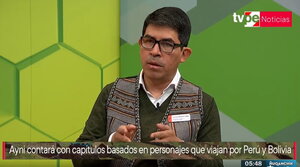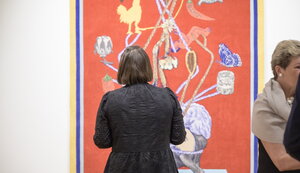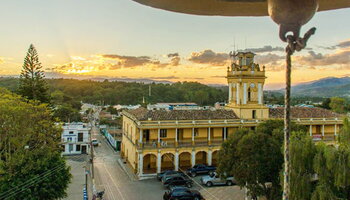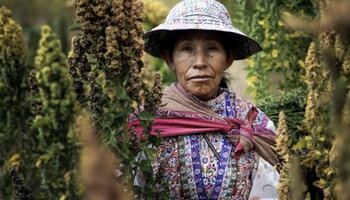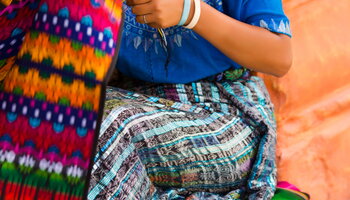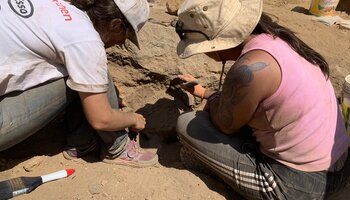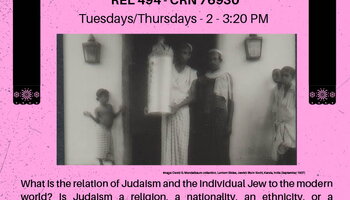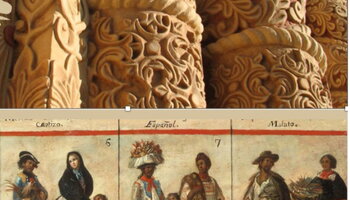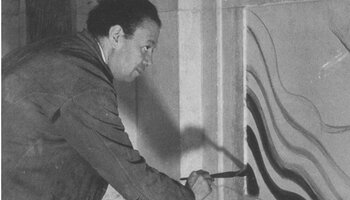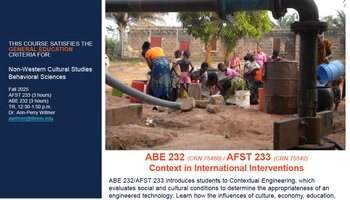Connect with CLACS
About CLACS
The Center for Latin American and Caribbean Studies (CLACS) serves students, faculty and scholars from across the University of Illinois campus, along with communities across Illinois and the Midwest, by promoting innovative research, specialist teaching, and public awareness of the Latin American and Caribbean region. CLACS is a designated National Resource Center for the 2022-2026 period, supported by the Department of Education under Title VI funding.
- Carlos Molina, Quechua instructor at the University of Illinois Urbana-Champaign, was recently featured on Nuqanchik, a national Quechua-language news program in Peru. In the interview, he discusses the Qinti Project, an initiative that promotes the teaching and learning of Quechua in the U.S., and... Read full story Quechua Instructor Carlos Molina Featured on Peruvian TV
- Join us to celebrate the grand reopening of the museum, including premiering new exhibitions—Fragmented Histories: Andean Art Before 1600, created with partners in Peru, and an introduction to New York-based contemporary artist... Read full story Krannert Art Museum: Grand Reopening Celebration!
- On March 15, more than 200 Venezuelan immigrants were accused of engagement in gang activity and deported from the U.S. — not to Venezuela, but to El Salvador, some 1,600 miles away from their home country. Ellen Moodie, an anthropology professor at the... Read full story Why were Venezuelan immigrants sent to El Salvador?

Professor Carlos Carrillo Joins New England Philharmonic as Composer-in-Residence
We are thrilled to announce that Associate Professor of Composition-Theory Carlos Carrillo has been appointed Composer-in-Residence with the New England Philharmonic. This prestigious role recognizes his exceptional contributions to contemporary classical music and his commitment to enriching the cultural landscape.
Upcoming Events
Explore our Courses
Title
LEARN Q'ANJOB'AL WITH US! TITAN HAKUY Q'ANJOBAL JETOQ!
Q’anjob’al is a living Maya language spoken in Guatemala and growing communities in the U.S. Studying it opens the door to understanding Mesoamerican Indigenous heritage, Maya worldviews, and cultural practices. It’s especially valuable for educators, researchers, and professionals working with Maya communities.
Title
COME LEARN QUECHUA! HAMUYCHIK RUNASIMI YACHARIKUQ!
Quechua is the most widely spoken Indigenous language in the Americas, with 8–9 million speakers across six Andean countries. Learning Quechua offers valuable insight into Indigenous heritage, Andean worldviews, and linguistic structure. It’s especially useful for researchers, educators, and professionals working in the region.
